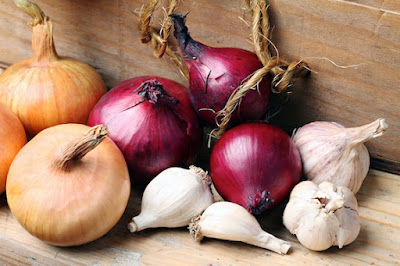Some foods are great
for your heart health and can help you naturally lower your cholesterol levels.
Here are tried and tested foods that have been proven to be particularly useful
in controlling your levels…
Olive oil and Olive products – Olive oil is rich in monounsaturated fatty
acids and vitamin E. Research shows that this lowers bad LDL cholesterol and
increases good HDL cholesterol.
Have one or two
tablespoons of olive oil a day over salads or use when you’re cooking. Keep an
eye out for margarine made from olive oil as this will also benefit you.
Polyunsaturated, “lite” and Flora “pro active”
margarine – Soft or tub
margarine with high polyunsaturated fatty acid content will also help to lower
LDL levels.
Then there are also “lite”
margarines which have a reduced fat, energy and salt content, all these factors
contribute to your heart health.
Legumes – Legumes include beans, chickpeas, lentils, peas and all soya products.
They have high dietary fibre content and are rich in protective nutrients,
including minerals, vitamins and phytonutrients. These will protect the heart
and lower cholesterol.
The South African
food-based Dietary Guidelines recommend that we should eat dry beans, peas,
lentils, etc. on a regular basis.
Fat-free yoghurt and other fat-free dairy
products – Full-cream dairy
products should be avoided at all times. However this doesn’t mean you have to
cut out all dairy products. Use fat-free milk, yoghurt and cottage cheese in a
low-cholesterol diet.
Fat-free yoghurt is a particularly
good choice because it is rich in protein, calcium and Lactobacillus
microorganisms which may help to lower blood cholesterol levels.
Antioxidant-rich fruit and vegetables – All fruits and vegetables can help to lower cholesterol
and protect the heart, however two groups are especially useful, those that are
rich in vitamin C or beta-carotene.
Foods rich in Vitamin
C include oranges, grapefruit, lemons, strawberries, cranberries, Chinese cabbage,
broccoli, Brussel sprouts as well as sweet and chili peppers.
Foods rich in
Beta-carotene include apricots, spanspek, mango, pumpkin, butternut, carrots,
broccoli, cabbage and spinach.
Garlic and other members of the onion family – Members of the allium family, which includes
garlic, spring onions and other onions can be used to lower cholesterol and
protect the heart.
Use garlic a lot in
your cooking and add it to fresh salads, as well as onions.
Whole, unsifted or unprocessed grains – All these foods are rich in B vitamins,
minerals and dietary fibre, but low in fat and cholesterol. Oats and oat bran have a high soluble fibre
content which can actively lower blood cholesterol levels.
Have a bowl of oats or
muesli, every day to keep your cholesterol in check.
Fish – People who eat fish three or more times a week are less likely to
suffer from heart disease and high blood pressure. The best fish sources of
omega-3 fatty acids are fish such as salmon, tuna, trout and trout.
Venison and ostrich – A lot of people are horrified by the restrictions
on red meat in most diets. However, you can eat moderate portions of venison
and ostrich. These meats are low in fat, saturated fat and cholesterol; just make
sure you don’t add large amounts of fat to the meat during preparation and
cooking.
Omega-3 enriched foods – Omega-3 can play a huge role in lowering the
risk of high cholesterol levels. Unfortunately our diets don’t contain enough
omega-3 to meet our needs.
Food manufacturers now
produce standard foods that are enriched with omega-3 fatty acids, such as
milk, eggs and bread.
Are you looking for
high quality, but affordable medical supplies or equipment to purchase for your
doctors practice or hospital? Supply Doctor is the one-stop online medical
store for all your needs! Whether it be blood pressure meters, scales, AED,
ultrasounds or disposables – we have it all










No comments:
Post a Comment